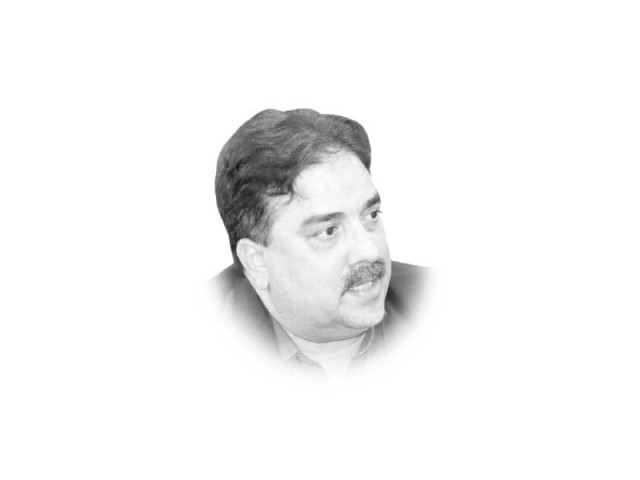Mr Trump, it's time to partner Pakistan's progression!
Pakistanis are eager to see how Trump or Harris will impact U.S.-Pakistan ties, affecting trade and security.

The US presidential election are too close to call. With Donald Trump and Kamala Harris neck and neck, what generates interest for Pakistanis living 12,000 km away from the shores of the Atlantic is the policy impact of the new administration on a country that has looked up to Washington in inspiration for redressing its grievances over the last seven decades. Notwithstanding the recent turbulence in the wake of the 'Absolutely Not' dictum by the incarcerated former Prime Minister Imran Khan, bilateralism has come to settle down for public good, and it is back to business as usual.
Pakistani diaspora in the US, constituting around 0.7 million, has been rallying to make their presence felt. The debate at the moment is whether Trump would be different from Biden, as a sizable number of Pakistanis beg to differ with the bias and partisanship exhibited by the Democrat President in his office from 2020-2024. Upheavals on the political front in Pakistan were apparently non-issues for the Biden-Kamala administration. Democracy, sanctity of ballot and human rights were just passing references for the White House residuals, per se. Similarly, in the wake of the US exit from Afghanistan, Pakistan was decimated as a footnote and the strategic wavelength took a nosedive.
Washington's growing unanimity with New Delhi and deep-rooted suspicions with Beijing had taken Islamabad off the table in an un-ceremonial way. Evolving from being the 'most allied-ally' and 'preferential non-NATO member' to phases of hyphenation and now de-hyphenation, the complex relationship has taken a new turn. Pakistan is nowhere on the radar of US policymakers if one gleans through three pivotal US strategic policy documents. This is quite unbecoming, given that Pakistan sits at the crossroads of Central and South Asia, and has done all it can to fight the US-centred war on terrorism at the cost of an existential crisis.
Pakistan's relationship with the US, nonetheless, is ingrained. America is one of the biggest markets for Pakistani products. Apart from being a key recipient of FDI and remittances from the US, Pakistan has exported goods worth $6 billion to the country in 2022-23. The new undercurrents of geo-economics in the region come as a blessing in disguise, and the US should look at CPEC and other connectivity avenues as an opportunity to well-entrench itself in trade and commerce. Policymakers in Islamabad and Washington must restructure a new composite dialogue and drastically enhance the level of interest in economy and technology-transfer.
Trump, who is enjoying lead over Kamala and is likely to return to White House, should make his position clear on Pakistan. His new tenure should be different from his quick-fix brand of decision-making, wherein he was obsessed with the mantra of 'do more'. It's time for Trump to stop perceiving Pakistan as part of the problem in the region with reference to Afghanistan.
The least that Islamabad expects Trump to do is to broker talks between India and Pakistan and keep the promise he made in an interview with The Hindustan Times in October 2016, pledging to mediate on Kashmir. Likewise, as he is an ardent supporter of a liability-free Afghanistan, he must flex his muscles to further a broad-based security consensus in counter-terrorism and rope in the Taliban for being partners in peace and development.
The citizens of both Pakistan and the US have many common denominators as they believe in the emancipation of mankind, values of liberty, entrepreneurship and market access, press freedom, democracy, human rights, and the rule of law. That is more than enough to gel a great bilateral relationship. Moreover, Pakistanis look with awe at the educational and big-ticket professional opportunities the US has to offer, and are eager to seek American investment in a host of avenues ranging from industry to agriculture, and from climatic concerns to energy. A strong people-centric equation can surely make new headways. I see potential in Trump's candidature, and urge him to take Pakistan along on the path of prosperity.















COMMENTS
Comments are moderated and generally will be posted if they are on-topic and not abusive.
For more information, please see our Comments FAQ